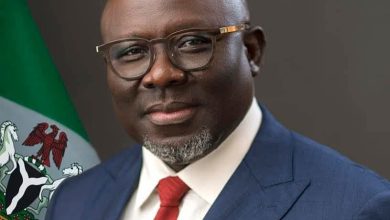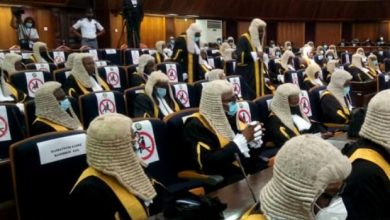Oborevwori signals readiness to partner with NDDC, Chevron on coastal highway project

Governor Sheriff Oborevwori of Delta, has declared his administration’s willingness to enter into a strategic partnership with the Niger Delta Development Commission (NDDC) and Chevron Nigeria Limited for the delivery of the Omadino–Okerenkoko–Escravos Road and Bridges project.
Speaking at the official commissioning of the new NDDC State Office in Warri on Friday, the governor described the proposed road as a game-changing infrastructure project that would open up access to riverine and oil-rich communities in Warri South and Warri South-West local government areas.
Governor Oborevwori revealed plans to convene a joint meeting between the state government, NDDC, and Chevron in the coming weeks to develop a clear implementation plan for the long-anticipated project.
“This government is fully prepared to play its part. The Omadino–Okerenkoko–Escravos corridor holds enormous value, and we are committed to partnering with stakeholders to make it a reality, ” he said.
Oborevwori emphasised that his administration would not shy away from ambitious infrastructure projects, particularly those that promise to improve economic access and inter-community connection in difficult-to-reach coastal areas.
Oborevwori also stated that discussions with Chevron and other relevant partners would begin early next month, with the aim of fast-tracking preparations and resolving any outstanding issues around funding and execution.
“Our doors remain open to productive partnerships, whether regional or national.
“We’re interested in projects that make a visible difference in the lives of our people, not just policies on paper, ” added.
The Omadino–Okerenkoko–Escravos Road and Bridges Project is expected to span over 70 kilometres, linking key oil-producing and riverine communities from Omadino to Ugborodo, with a spur to Kokodiagbene.
It will include 29 bridges, creating direct road access to strategic economic hubs, including Chevron’s Escravos Export Terminal.
Beyond improving transportation, the road is seen as vital for boosting trade and movement in riverine areas, improving emergency and security response, supporting peace-building and stronger inter-community relations.
The project would also enhanced access to education, healthcare, and social services in isolated communities among others.
According to project outlines, the main stretch will run for 66.5 km, with an additional 4.2 km spur, crossing multiple waterways and mangrove zones that have long hindered road connectivity.
Governor Oborevwori also reiterated his commitment to cost-effective governance, transparency, and delivering lasting infrastructure under his ‘MORE Agenda’, which prioritised Meaningful Development, Opportunity for All, Realistic Reforms, and Enhanced Peace and Security.
He noted that the road project aligned with his vision, promising not only economic benefits but also long-term social impact for coastal dwellers historically cut off from state infrastructure.
“The impact of this road will be felt for generations.
“It is more than a road, it is a lifeline to the future for our riverine communities, ” he said.



